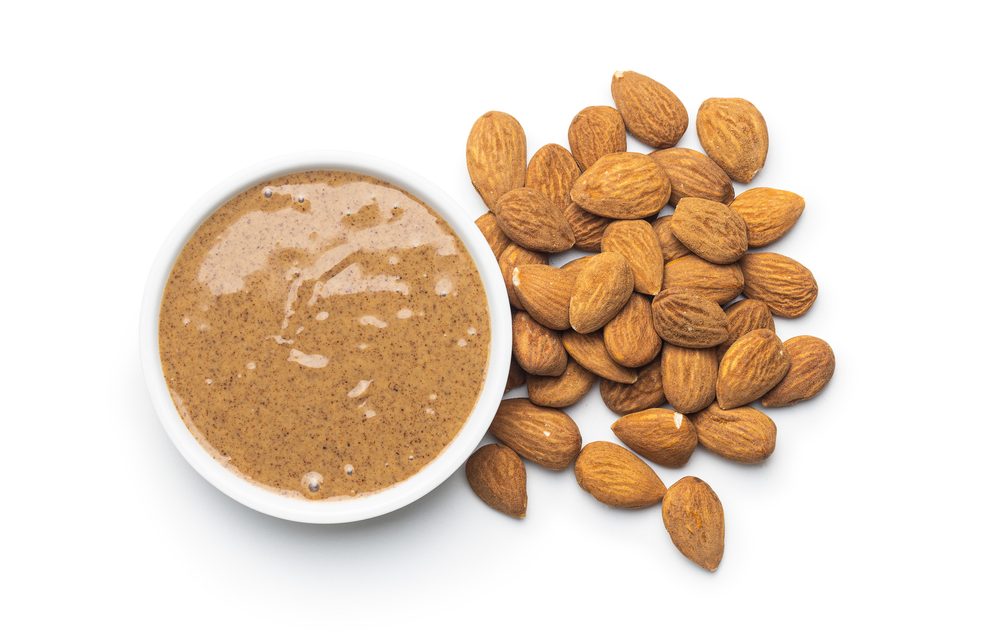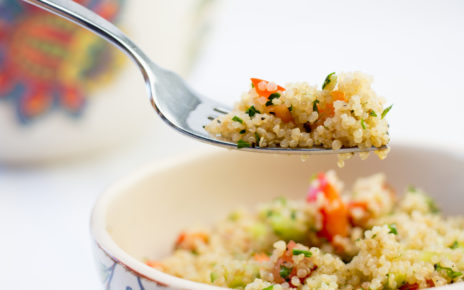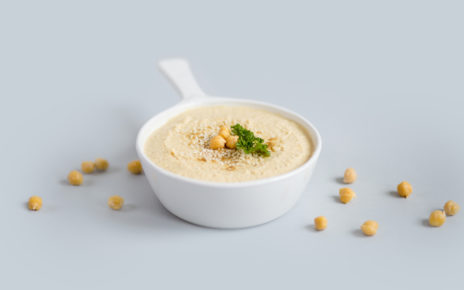Is Almond Butter Keto Friendly?
While you might worry that almond butter’s natural sweetness signals a high carb count, it’s actually quite keto-friendly when consumed in moderation. You’re likely aware that the keto diet emphasizes low carbohydrate intake to encourage the body to burn fat for energy, a process known as ketosis.
Almond butter, with its rich nutritional profile, fits well within this dietary framework, offering healthy fats and fiber while keeping carbs in check. However, not all almond butters are created equal, and the specifics of their nutritional content can significantly impact your keto journey.
Let’s explore what makes almond butter a viable option for those on a keto diet and what you should look out for to stay within your dietary goals.
Understanding the Keto Diet
To grasp whether almond butter is keto-friendly, it’s crucial to understand what the keto diet entails and how it functions. At its core, the keto diet emphasizes a low-carb, high-fat regimen to trigger your body into a state known as ketosis. This mechanism shifts your body’s primary energy source from carbs to fats, effectively burning fat at an accelerated pace.
The ketosis mechanism kicks in when you significantly reduce your carb intake, typically to less than 50 grams a day, pushing your body to seek alternative fat sources for energy. This process isn’t instantaneous; it requires strict adherence to macronutrient ratios, usually around 70% fat, 25% protein, and 5% carbohydrates. It’s these ratios that guide your daily limits and ensure you remain in ketosis.
However, transitioning to ketosis isn’t always smooth. Some people experience the ‘keto flu,’ a temporary condition with symptoms resembling the flu. It’s a sign your body is adjusting to its new fuel source. Understanding and preparing for this can make the transition smoother.
Identifying suitable fat sources is paramount. Not all fats are created equal, and choosing the right ones can make a difference in your diet’s effectiveness and your overall health. It’s also essential to keep an eye on your daily limits to ensure you’re within the boundaries that support ketosis.
The keto diet isn’t just about cutting carbs; it’s a meticulous balance of macronutrient ratios to maintain the delicate state of ketosis. Understanding this balance is key to evaluating whether almond butter, or any food, fits into your keto journey.
The Basics of Almond Butter
Understanding the keto diet’s macronutrient balance sets the stage for exploring how almond butter fits into this dietary approach. You’re diving into a world where the specifics, like almond cultivation methods and butter consistency variations, play a crucial role in your dietary choices. Let’s get into the nitty-gritty of almond butter, considering these essential aspects.
Almond cultivation methods significantly impact the quality and flavor of the almonds used to make the butter. Organic and traditional farming practices yield nuts with varying tastes and nutritional profiles, which in turn affect the final product. You’ll find that almonds from different regions carry unique flavors due to the soil and climate they grow in, hinting at how almond origin influences are at play.
When it comes to butter consistency variations, you’ve got options ranging from smooth to crunchy. The texture you choose can enhance your eating experience, especially if you’re mixing it into keto-friendly snacks or meals. Homemade almond butter gives you the freedom to adjust this consistency to your liking. Plus, making it at home allows you to experiment with adding salt or other keto-friendly flavors.
Lastly, don’t underestimate the toasting effects on flavor. Toasting almonds before blending them into butter can intensify their natural taste, adding a rich depth that complements the keto diet beautifully. Whether you’re buying store-bought or going the homemade route, understanding these basics of almond butter ensures you’re well-equipped to make it a staple in your keto lifestyle.
Almond Butter Nutritional Profile
Diving into the nutritional profile of almond butter, you’ll find it’s packed with healthy fats, making it an excellent choice for your keto diet. Originating from the humble almond, a nut known for its rich history and nutritional benefits, almond butter brings a lot more to the table than just good fats. It’s a treasure trove of vitamins, minerals, and protein, all of which are crucial for maintaining a healthy body, especially when you’re limiting your carb intake.
When exploring almond butter, it’s essential to consider the processing methods involved. The way almond butter is made can significantly impact its nutritional value. Raw and minimally processed versions tend to retain more nutrients compared to those that are heavily processed. This is something to keep in mind as you scan through your options.
Butter alternatives come into play for those looking for variety or have specific dietary needs. However, when you’re on a keto diet, not all butter alternatives will meet the criteria. It’s the high-fat, low-carb profile of almond butter that makes it stand out among other options.
Almond butter also comes in various flavor variations, from plain to those mixed with sea salt or honey. While these can add an exciting twist to your meals, it’s vital to stay mindful of any added sugars or carbohydrates that could affect your keto journey.
Lastly, for those with a nut allergy, heed warnings and look for suitable alternatives that won’t compromise your health or diet. Almond butter is fantastic for many, but always prioritize safety and consult with a healthcare provider when in doubt.
Carbs in Almond Butter
When considering almond butter for your keto diet, you’ll find it’s surprisingly low in carbs, making it an attractive option. Almonds, the star in almond butter, are a product of careful almond cultivation, which has been honed over centuries to produce nuts that aren’t only tasty but also nutritionally dense. This process significantly impacts the carb content, ensuring that you’re getting a low-carb butter alternative that fits within your keto guidelines.
Almond butter’s carb content can also vary slightly depending on the specific processing methods, such as roasting effects. Roasting almonds can enhance their flavor, leading to a richer, more robust almond butter. However, it’s worth noting that these variations in processing don’t significantly alter the carb content, keeping almond butter keto-friendly.
Furthermore, the world of almond butter offers a variety of flavor variations. From the creamy and smooth to the crunchy and chunky, these differences cater to personal preferences without compromising your carb intake. This flexibility ensures that incorporating almond butter into your keto diet can be both enjoyable and diverse.
Lastly, the organic labeling of almond butter can reassure you about the quality of almonds used. Organic almond cultivation avoids the use of synthetic fertilizers and pesticides, potentially reducing your exposure to unwanted chemicals. While organic labeling doesn’t directly impact the carb content, it does signify a product that’s been produced with high standards, aligning with the health-conscious ethos of many keto dieters.
Health Benefits of Almond Butter
Beyond its low carb appeal, almond butter offers a wealth of health benefits that can enhance your keto journey. Its rich nutrient profile stems from almond cultivation, a process that ensures these nuts are packed with vitamins, minerals, and healthy fats. As you explore butter alternatives, it’s vital to consider almond butter’s superior health advantages.
One of the standout features of almond butter is its high antioxidant content. These antioxidants protect your body from oxidative stress, which can lead to chronic diseases. By including almond butter in your diet, you’re not just satisfying your taste buds; you’re also fortifying your body’s defenses against illness.
Moreover, almond butter boasts remarkable skin benefits. Thanks to its vitamin E and healthy fats, it can help your skin stay hydrated, supple, and protected from damage caused by free radicals. If you’re looking for a diet that keeps you looking as good as you feel, almond butter is an essential component.
Its dietary versatility is another plus. Almond butter can be seamlessly incorporated into a variety of keto-friendly meals and snacks, making it a staple for anyone following this diet. Whether you’re spreading it on low-carb bread or using it as a base for sauces and dressings, almond butter’s creamy texture and rich flavor elevate any dish.
In essence, almond butter isn’t merely a butter alternative; it’s a nutritional powerhouse. Its incorporation into your diet can lead to improved health, inside and out, making your keto journey both delicious and nutritious.
Incorporating Almond Butter Into Keto
Integrating almond butter into your keto diet can significantly enhance the variety and nutritional value of your meals. With its rich, creamy texture and versatile almond flavoring variations, almond butter can be a delightful addition to your keto lifestyle. Whether you prefer it smooth or chunky, infused with vanilla or cinnamon, these flavoring variations can add an exciting twist to your keto recipes.
When considering keto snack timing, almond butter can be a game-changer. It’s a fantastic option for those mid-afternoon hunger pangs or as a satisfying late-night treat. Its high fat content can help keep you full, making it easier to stick to your keto diet plan. And if you’re looking for pre-workout options, a spoonful of almond butter can provide the energy boost you need without kicking you out of ketosis.
However, it’s essential to keep allergy considerations in mind. If you or someone in your household has a nut allergy, almond butter mightn’t be a suitable option. Always prioritize health and safety first.
Deciding between homemade vs. store-bought almond butter is another consideration. Making your almond butter at home allows you to control the ingredients and avoid added sugars or unwanted oils, keeping it keto-friendly. But if you’re pressed for time, there are store-bought options available that fit the keto criteria—just be sure to read the labels carefully.
Incorporating almond butter into your keto diet can be a delicious and nutritious choice. Just remember to consider the timing, potential allergies, and whether homemade or store-bought suits your lifestyle best.
Serving Size Recommendations
To maximize the benefits of almond butter in your keto diet, it’s crucial to pay attention to serving sizes. Almond butter is rich in healthy fats and nutrients, making it a great addition to your keto regimen, but overindulgence can lead to unexpected carb intake and hinder your progress.
When considering serving measurements, a standard portion of almond butter is typically two tablespoons. This amount provides a good balance of fats and proteins while keeping your carb count in check. Portion control is key in maintaining a ketogenic state, as it’s easy to overeat when it comes to nut butters due to their palatable taste and texture.
To ensure you’re not exceeding your daily limits, it’s helpful to visualize the size comparison of two tablespoons to a common object, such as a ping-pong ball. This mental image can guide you when you’re doling out servings, preventing accidental overconsumption.
Incorporating consumption tips into your routine can also assist in managing your intake. For instance, measuring out your almond butter before adding it to recipes or snacks can help you stick to the recommended serving size. Additionally, keeping track of your overall daily fat and carb intake will allow you to enjoy almond butter without compromising your keto goals.
Almond Butter Vs. Peanut Butter
While carefully managing your serving sizes of almond butter is crucial for a keto diet, it’s also important to understand how it stacks up against peanut butter in terms of nutritional values and keto-friendliness. When you’re following a low-carb, high-fat diet, every gram of carbohydrate and every source of fat matters, making the choice between these two popular spreads more significant than you might think.
Firstly, let’s talk about allergy considerations. Peanut allergies are quite common, making almond butter a safer choice for many. However, almonds are also allergens, though less prevalent. So, if allergies are a concern for you or someone in your household, almond butter might be the way to go.
Taste comparison is subjective, but generally, almond butter has a slightly sweeter, more nuanced flavor compared to the robust, salty taste of peanut butter. Texture differences also come into play; almond butter is often grainier, while peanut butter tends to be smoother. These factors could influence your preference, especially when using them in keto recipes or as spreads.
From a price comparison standpoint, almond butter is typically more expensive than peanut butter. This might affect your decision if you’re sticking to a budget.
Lastly, their culinary uses differ slightly due to their taste and texture profiles. Almond butter works wonderfully in smoothies, dressings, and as a base for keto-friendly desserts, while peanut butter is often used in more hearty, comfort food-style keto recipes.
Choosing between almond and peanut butter depends on your dietary needs, budget, and personal preference. Both can fit into a keto diet, but almond butter edges out slightly in terms of nutritional profile and allergy considerations.
Creative Keto-Friendly Almond Butter Recipes
Often, incorporating almond butter into your keto diet can spark creativity in the kitchen with a variety of delicious, low-carb recipes. One of the simplest yet most satisfying ways to enjoy almond butter is by making almond crepes. These thin, tender crepes can be filled with a dollop of almond butter and a sprinkle of keto-friendly sweetener for a sweet treat or breakfast option.
For those who love a good, creamy texture, butter swirls in your morning coffee can elevate your caffeine fix. Just blend a tablespoon of almond butter into your hot coffee until it’s smooth and frothy. This concoction not only tastes indulgent but also gives you a good dose of healthy fats to start your day.
For a decadent dessert, keto truffles made with almond butter are a must-try. Mix almond butter with coconut flour, a keto sweetener of your choice, and vanilla extract. Roll the mixture into balls and then coat them in unsweetened cocoa powder for a bite-sized treat that’s both satisfying and keto-friendly.
Almond butter pancakes are another fantastic way to kickstart your morning. Just substitute almond butter for flour in your favorite low-carb pancake recipe for a nutty flavor and a fluffy texture.
Lastly, almond smoothies are an excellent choice for a quick and nutritious snack. Blend almond butter with unsweetened almond milk, a handful of spinach, and some frozen berries for a refreshing and filling smoothie that fits perfectly into your keto lifestyle.
These creative recipes not only keep your meals interesting but also ensure you’re getting the nutritional benefits of almond butter while sticking to your keto diet.
Potential Downsides to Consider
Before diving into the almond butter frenzy on your keto diet, it’s crucial to weigh its potential drawbacks. While almond butter is celebrated for its health benefits and keto compatibility, there are several factors you should consider to make an informed choice.
Firstly, allergy warnings can’t be overlooked. If you’re allergic to nuts, almond butter is off the table. It’s essential to listen to your body’s reactions and consult with a healthcare provider if you’re unsure about nut allergies.
Overconsumption effects are another concern. Despite its healthful profile, almond butter is high in calories and fats. Consuming it in large quantities can lead to weight gain rather than weight loss, which might contradict your keto goals. It’s vital to practice moderation to enjoy its benefits without facing the downsides.
Price concerns also come into play. Compared to other spreads, almond butter can be significantly more expensive. This price difference might impact your budget, especially if you’re planning to incorporate it regularly into your diet.
Texture issues are often reported by first-time users. Some find the consistency either too runny or too thick, which could be off-putting. It’s a matter of personal preference, but it’s something to consider before making it a staple in your pantry.
Lastly, exploring homemade options could be a solution to some of these downsides. Making almond butter at home allows you to control the texture and ingredients, potentially saving money in the long run. However, it requires time and a good food processor, which mightn’t be feasible for everyone.
Shopping for Keto-Friendly Almond Butter
Having considered the potential downsides, it’s crucial to know how to pick the right almond butter for your keto diet when shopping. First off, let’s dive into almond selection tips. You’ll want to look for almond butters that list almonds as their only ingredient or include minimal additional ingredients that comply with your keto diet. This ensures you’re not inadvertently consuming added sugars or carbs.
Butter texture preferences play a significant role as well. Whether you prefer smooth or crunchy, ensure that the texture doesn’t come from added sugars or hydrogenated oils, which can kick you out of ketosis.
Organic vs. conventional is another decision you’ll face. Organic almond butter is made from almonds that haven’t been exposed to pesticides and are often deemed healthier. However, if organic options stretch your budget too thin, conventional almond butter with no added sugars or harmful oils can still be a keto-friendly choice.
Store brand comparisons can reveal surprising differences in quality and keto-compatibility. Don’t assume that all almond butters are created equal. Some store brands offer excellent, clean options at a lower price point, while others might sneak in non-keto-friendly ingredients.
Final Thoughts on Almond Butter and Keto
So, is almond butter a good fit for your keto diet? Absolutely, assuming you don’t have almond allergies. It’s a nutrient-dense option that aligns well with the high-fat, low-carb requirements of keto. However, keep an eye out for any signs of intolerance or allergic reactions, as these could derail not just your diet but also your health.
Exploring flavor variations can make your keto journey more enjoyable. Don’t just stick to the plain almond butter; dive into the world of cinnamon, vanilla, or even cocoa-infused almond butters. These can add an exciting twist to your snacks or meals without compromising your carb limits. But remember, always check the labels for added sugars or non-keto-friendly additives.
Storage tips are crucial for maintaining the freshness and nutritional value of your almond butter. A cool, dry place is ideal, but if you’re not planning to use it quickly, the fridge can extend its shelf life. Just ensure it’s well sealed to prevent it from absorbing other flavors.
If you’re feeling adventurous, why not try homemade recipes? Making your almond butter allows you to control the ingredients, ensuring it’s as keto-friendly as possible. Plus, you can experiment with different flavors to suit your taste.
Lastly, consider the impact of your purchase on the environment. Opt for almond butter in eco-friendly packaging. It’s a small step that supports sustainable practices, aligning your keto diet with a more environmentally conscious lifestyle.
Conclusion
In conclusion, almond butter can be a fantastic addition to your keto journey. Its low carb content and high healthy fat profile make it an ideal choice. Remember, moderation is key due to its calorie density.
When shopping, opt for pure, unsweetened versions to keep it keto-friendly. Incorporating almond butter creatively in recipes can add delicious variety to your diet. However, always be mindful of its portion sizes to stay within your carb limits.
Enjoy exploring almond butter’s versatility on keto!



